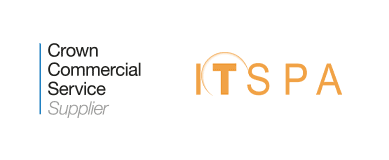With the need for donations to keep operating, many charities turn to call centres to help bring in new funds. Call centres can also increase interest and awareness of charity issues and fundraising opportunities by calling potential donors. While call centres are an excellent solution for many charities, there have been some issues with the process, and most charities will still face challenges today.
Charities have come under fire in the past with claims that call centres have harassed people to make donations. This includes repeatedly calling people who have requested to be on no-call lists. Charities were especially critiqued for requesting donations from vulnerable people, such as those with dementia or severe health difficulties.
Several charities were utilising a private call centre company to help them undertake calls on their behalf. With these private call centres pushing employees to gain a high level of donations, it was discovered that inappropriate tactics were being used in some cases.
This prompted a review of how fundraising was regulated to improve the way calls were made. The Fundraising Regulator was established as a body to oversee fundraising practices, ensuring that public expectations for reasonable communication from charities were upheld. The Fundraising Preference Service was also set up in 2017, allowing people to opt-out of receiving requests from charities. This also allows people to stop charities contacting their vulnerable relatives.
Following the revelations about poor practice in contact centres, many charities severed ties with their call centre agencies, taking their calls in-house, or finding other ways of contacting potential donors. Whether in-house or with an agency, charity call centres face a number of limitations and challenges. We will address some of these factors and how they can be overcome.
Outbound Calling

In many contact centres, there will be a mixture of inbound and outbound calling. When calls are inbound, coming from clients and customers to the call centre, callers can be put into queues and wait until an agent becomes available.
For most charities, the majority of calls will be outbound, going to potential donors asking for donations. When making calls to a potential donor, you don’t want to leave them waiting, as you are making a request to them. This can restrict the number of potential donors a volunteer can get in touch with during the day, as calls will have to be dealt with one at a time.
To overcome this, a predictive dialler is an essential feature for your contact centre, as this will call multiple numbers at once, immediately weeding out any that will go to answer machine, not be picked up or reach a busy tone. This eliminates the need for manual dialling, saving a great amount of time and human error. The predictive dialler can anticipate the end of the call, and the call volunteer can be instantaneously be put through to the next donor as each call ends.
Training and Scripts

With charities largely run by volunteers, training for calls is often minimal, with many volunteer diallers operating from a script. Rather than relying on paper notes for scripting, dialler systems can provide scripts for volunteers to follow on-screen. The calls are made easier, as the volunteer is led through the call. Scripts can develop depending on the answers given by potential donors, as volunteers select options on-screen. Such scripts can help volunteers to always follow the best call practices, ensuring they give all the required information about payment processes. This can help call centres cut down on training costs, with volunteers able to start work without memorising different answers to call queries.
Sensitive Data

Charity call centres are likely to be taking donations over the phone, which means that a secure payment system is needed to be in place. Due to this, the call centre must be PCI DSS compliant, ensuring that payment card data is stored securely. The call system must also allow for the secure input of bank card details over the phone.
Aside from payment data, the personal data of potential donors must also be kept securely and be easily updated. If someone requests to be put on a no-call list, then this must be done. Using a Customer Relationship Management (CRM) system can ensure that this happens, as donor profiles can be easily updated during and after calls. Notes can also be made on the system to help volunteers with future calls to the potential donor. For example, a donor may mention interests during the call, which can be used as a point of conversation by the call centre agent to connect with the donor during future calls.
If your charity call centre requires any of the solutions to these unique challenges mentioned here, then Hostcomm offers a range of resolutions that can be tailored to fit your needs. Our hosted predictive dialler helps to maximise your caller’s efficiency and productivity, keeping donor conversion rates high. The diallers are fully integratable into your current CRM system, making the upgrade particularly easy. All of our relevant solutions are designed under PCI DSS regulations, ensuring that payments made through our systems remain secure. Visit our charities page to discover more about how we have helped a variety of charities.
Image Credit: PGBS














